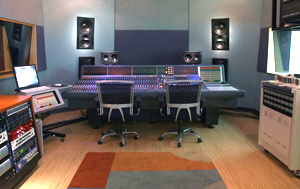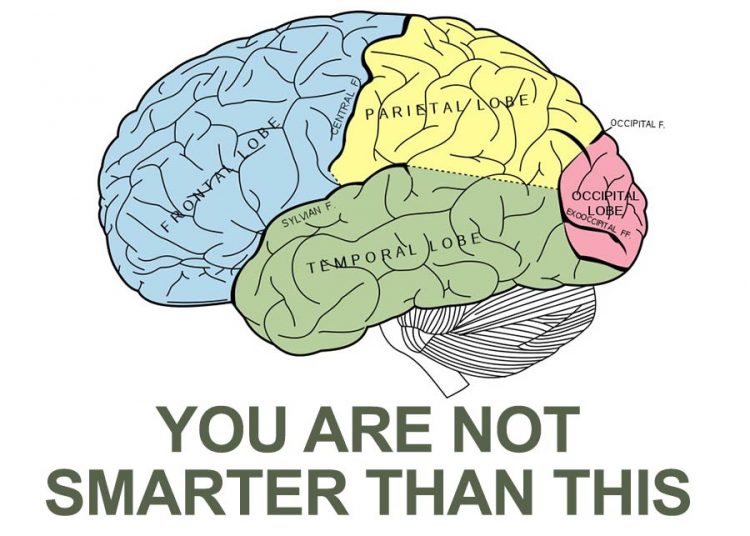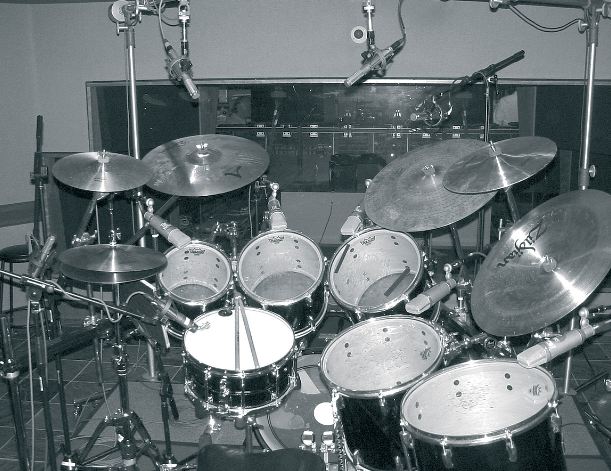 I’ve been lucky enough to work in recording studios that had some amazing gear, which no matter what anyone tells you, does make getting a good sound just that much easier. However, I’ve also done a lot of sessions on location with bad acoustics and even worse mics, pre-amps and converters, but had to do my best to get a good sound out of those sorts of questionable studio environments. Below are 5 tips that, no matter what sort of room you’re recording in or gear you have on hand, that can help you keep focus in sound (and mind) to get a good recorded sound.
I’ve been lucky enough to work in recording studios that had some amazing gear, which no matter what anyone tells you, does make getting a good sound just that much easier. However, I’ve also done a lot of sessions on location with bad acoustics and even worse mics, pre-amps and converters, but had to do my best to get a good sound out of those sorts of questionable studio environments. Below are 5 tips that, no matter what sort of room you’re recording in or gear you have on hand, that can help you keep focus in sound (and mind) to get a good recorded sound.
1. Know and WORK the source BEFORE you mic the instrument. Yes, you’re paid by the hour, so you don’t want to take toooo much time getting the perfect sound out of the instrument. It’s true that you can fix many things in the mix, but the better you can get the sound at its source, the better your final product will be, and the less time it will take to get there. I often bring in my own guitars and mics, that I know sound good just in case, and also make sure that I know exactly what gear the band is using before the session (the latter so that if any of it isn’t good, I can recommend something to rent for the session). Let the musicians set up and get the tone they want (here I’m referencing mainly guitars and bass, but it can apply to any instrument). Then give it a listen. You don’t want to “change” the tone b/c the tone is part of “who” the band is, but you do want to make any adjustments and recommendations that purify and/or clarify it. Sometimes that means slight EQ adjustments on the amp, sometimes making it louder or quieter, and very often times moving the amp into different spaces in the room (depending on the final sound you want). Spend some time to work with the musician to get the best tone possible out of the instrument first, then start with your mic selection and placement.
2. Don’t get stuck with standard mic selection and placement. We all have a list in our heads of mics that we tend to pull first for different instruments and styles. This isn’t a bad thing, but don’t get stuck with them. Use that mental list as a starting point for recording. For cabinets, place and listen, then remember that as the mic gets closer to the center of the cone the tone gets brighter, and darker / warmer towards the outside. Know your polar patterns as well. Make use of the proximity / cardioid effect and the increased low-end response that you’ll get as the mic gets closer to the sound source. Above all, if it’s not working, change it out; try a different mic that has a tonal characteristic that is closer to the sound you want to achieve.
3. Don’t overdo your EQ. I cannot say how important this is. I’ve taught audio engineers for about 10 years (we’re talking approaching two thousand aspiring audio engineers at this point) and across the board almost every one had a tendency to over process the signal; over compensate which ultimately hollows out or mutates the signal so much that it loses its character, presence, and depth in the mix. Some people say to never EQ or use dynamics (Gate / Compressor / Expander ) to tape (while recording to disk, whatever). I agree mostly with that, but a little signal processing is OK so long as it’s not too dramatic… just in case you need to undo it later on in the mix. Change the tone on the amp and change the microphone placement first, then use your signal processing to make very small adjustments for recording. If you’re not sure if you’ve EQ’d too much, chances are you have, so pull back.
4. Understand the band and their songs. I fell into this trap a lot in the beginning: that I, as the audio engineer, understood what the songs should sound like more than the artists did. It took a really good producer to slap me around a bit to show me how dumb that belief was. The more I learned, the more I could have intelligent input, but the most important part was to NEVER let my personal biases overly influence the actual sound, character, and intent of the band and their songs. Imagine all of the ground-breaking music (or records) that would not have been made had the engineer and/or producer not allowed the band to take the sound into a new direction. Being an audio engineer has a lot to do with technology and process and sound, but it’s also an art form. You have to communicate with both the musician AND the actual song. Great music is never forced in its sonic character. It’s sound becomes one and the same with the lyric, the chord progressions, rhythm and melody.
5. Practice headphone mixes. If you have ever done live sound, you know how important a good monitor mix is to the musicians. Without a good monitor mix, their performance suffers. It’s exactly the same in the studio. Ever since it became really easy to simple send the master L/R mix in the control room to the headphones a lot of audio engineers became lazy. For recording vocals and a lot of overdubs it’s a good starting point, but never forget that the music mix that you send to the headphones can influence the musicians performance. Primarily it has to be good, but beyond that you can help them in many ways by turning up or down certain tracks to make their performance more aggressive or soft and subtle. Drummers require a much different headphone mix than a lead guitarist, a keyboard player, and a singer. Take some friends and run some sessions with a focus on headphone mixes. Play around and see how it might change their performance, and ask them for feedback so that way you learn how to do it right with them before you test out with studio clients.
There are probably 1000 other long and short tips that can be written about recording music in a studio, but for now, there are five to practice and keep in mind. Above all else: hold true to the beauty of great sound and the wonder that a great song can create. If you don’t stray from those two things, you’ll always be on the right track. My one hope is that every new audio engineer that comes down the pike always embraces GREAT sound and GREAT song. Respect both. Love both, and help keep high-quality audio alive in the land of MP3s ;)
Published: by | Updated: 09-10-2012 08:50:44





















